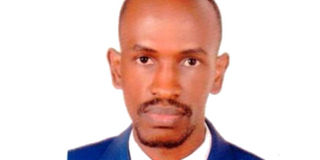Prime
Climate change effects: Uganda at a crossroads

Jude Kamuganga
What you need to know:
- Policy and planning. The costs and benefits of adaptation need to be built into the policy and planning processes and we must, therefore, do much to mitigate, and or adapt to climate supported in local community practices. It is the work of policy markers to come up with good policies.
At the 2018 United Nations Climate Change Conference (COP 24) meeting last December in Katowice, Poland, four former presidents of UN talks issued a statement urging “decisive action” on climate change. “The world is at a crossroads and decisive action in the next two years will be crucial to tackle these urgent threats”, they said in their statement.
In November 2018, the Intergovernmental Panel on Climate Change (IPCC) published a special report on global warming that called on the world to limit global warming to a maximum of I.5C in 12 years, beyond which even half a degree will significantly worsen the risks to drought, floods, extreme heat and poverty for hundreds of millions of people.
The IPCC warned about a looming catastrophe due to climate change. As scientists have always warned, we risk a “hot house earth” if we don’t as of urgency do something about climate change. The IPCC reiterated that it must not be business as usual if we are to contain global warming.
Unfortunately, some countries like USA, Russia, and Saudi Arabia urged COP 24 not to adopt the IPCC report, but only recognise it. This is the dilemma faced by environment action - a fight between politics and science and a fight between developed nations and developing nations.
The advent of firebrand climate change deniers like POTUS, Trump and Jair Bolsonaro of Brazil poses a threat to climate change action. At the just concluded COP 24 in Katowice, one could see a rift between developed and developing nations, especially small island nations. Developing nations argue that it is the developed nations that have tremendously destroyed the environment through massive industrialisation, etc. However, developed nations contend that even developing nations have contributed to climate change.
The negotiations to fund developing nations to mitigate or adapt to climate change seem to be hitting a snag. The government in Washington, for example, has said it won’t pay the money the past government agreed to contribute to the Green Climate Fund. Gratefully, the Obama administration had advanced part of the money to the Green Climate Fund.
It must be noted that not all developed nations are against the Paris Agreement resolutions. Many European countries have pledged funds to the Green Climate Fund and most countries under the EU have promised to cut on greenhouse gas emissions. In July 2017, France announced that it would no longer use coal to produce electricity after 2022 and a plan to ban all petrol and diesel vehicles by 2040.
As a party to the Paris Agreement, Uganda needs to act towards achieving the aims of the agreement. Uganda is a developing country and survives mainly on agriculture, which is a climate sensitive sector.
Our economy and livelihood as a nation is greatly impacted by climate change. The IPCC has identified the least developed countries (LDCs) as those that will be most affected by climate change because of their current low adaptive capacity.
Adaptation will be a key response to unavoidable climate change, but will only be successfully achieved at a significant cost. The costs and benefits of adaptation need to be built into the policy and planning processes and we must, therefore, do much to mitigate, and or adapt to climate supported in local community practices.
It is the work of policy markers to come up with good policies and a need for sensitisation so that people see the danger we face, if we don’t save environment.
Another aspect is mitigation of climate change - mitigation means doing all that is possible to contain climate change. Adaptation will work in the case of unavoidable climate change. Adaptation is more costly than mitigation and will require enormous resources that may be impossible or hard to find. We should, therefore, do more to mitigate climate change. We need to plant forests now, stop deforestation, stop swamp reclamation, manage our wastes well, stop air pollution, and use renewable energy and other climate change mitigating factors.
Kampala Capital City Authority is coming up with a bylaw to regulate the cutting of trees. This is commendable because the trees help in absorbing and storing carbon dioxide from manufacturing plants and a multitude of vehicles in the city, hence containing global warming.
Former Maldives president Mohamed Nasheed warned that “We all have a hell to pay for climate change”.
Mr Kamuganga is a lawyer and policy associate at Envirosure




